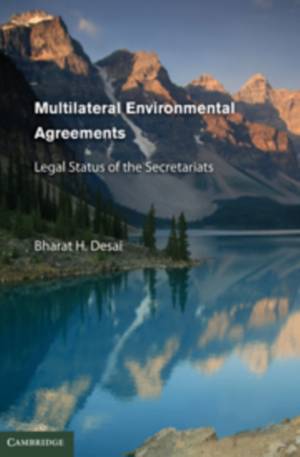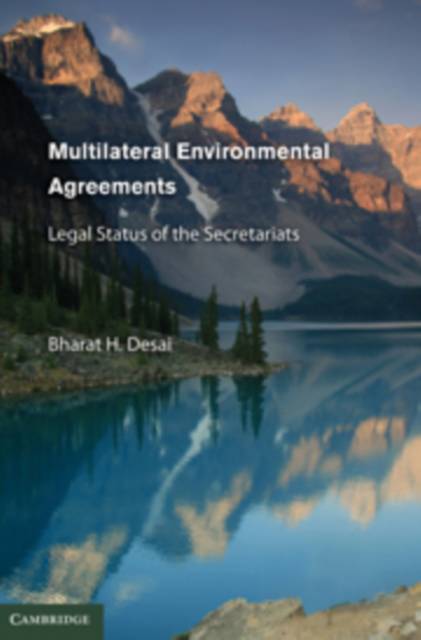
- Afhalen na 1 uur in een winkel met voorraad
- Gratis thuislevering in België vanaf € 30
- Ruim aanbod met 7 miljoen producten
- Afhalen na 1 uur in een winkel met voorraad
- Gratis thuislevering in België vanaf € 30
- Ruim aanbod met 7 miljoen producten
Zoeken
Multilateral Environmental Agreements
Legal Status of the Secretariats
Bharat H Desai
Hardcover | Engels
€ 139,95
+ 279 punten
Uitvoering
Omschrijving
The present study seeks to examine the genesis, development, and proliferation of multilateral environmental agreements (MEAs) - in-built law-making mechanisms and processes of institutionalization - and their ad hoc treaty-based status and the issue of the legal personality of their secretariats. It provides legal understanding of the location of MEA secretariats within an existing international host institution, as well as discussion of the issue of relationship agreements and interpretation of the commonly used language that triggers such relationships. It places under scrutiny the standard MEA phrase "providing a secretariat," delegation of authority by the host institution to the head of the convention secretariat, possible conflict areas, host country agreement, and the workings of the relationship agreements. The book offers an authoritative account of the growing phenomenon in which an existing international institution provides a servicing base for MEA that, in turn, triggers a chain of legal implications involving the secretariat, the host institution, and the host country.
Specificaties
Betrokkenen
- Auteur(s):
- Uitgeverij:
Inhoud
- Aantal bladzijden:
- 346
- Taal:
- Engels
Eigenschappen
- Productcode (EAN):
- 9780521883283
- Verschijningsdatum:
- 19/04/2010
- Uitvoering:
- Hardcover
- Formaat:
- Ongenaaid / garenloos gebonden
- Afmetingen:
- 155 mm x 231 mm
- Gewicht:
- 657 g

Alleen bij Standaard Boekhandel
+ 279 punten op je klantenkaart van Standaard Boekhandel
Beoordelingen
We publiceren alleen reviews die voldoen aan de voorwaarden voor reviews. Bekijk onze voorwaarden voor reviews.








